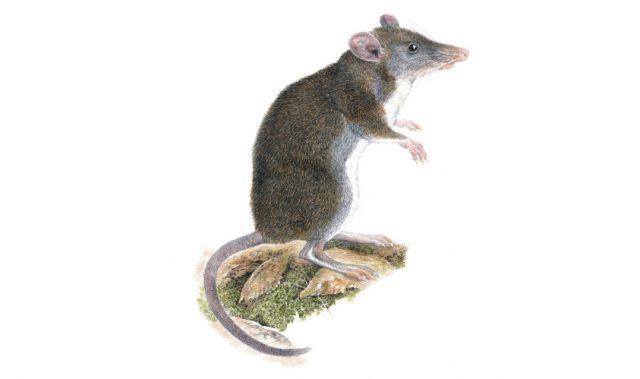
Phillip Alviola
Associate Professor
University of the Philippines Los Baños
Philippines
AsianScientist (Jan. 22, 2021) – Long before the emergence of COVID-19, or even SARS in 2003, bat virologist Dr. Phillip Alviola was a young boy growing up in the Philippines. Awed by the iridescent feathers of the taxidermied birds his father, a notable wildlife biologist, would bring home, Alviola too dreamed of venturing into the jungles one day.
Having spent the last two decades fulfilling his childhood dreams in the field, Alviola is now an associate professor at the University of the Philippines Los Baños (UPLB) where he studies mammalian taxonomy, forest and cave ecology and most recently, bat virology.
As a bat virologist, he works with researchers to capture and identify bats, isolating novel viruses and antibodies from the winged creatures. By embarking on long-term surveillance studies of bat populations in the Philippines, Alviola hopes to determine how exactly viruses like SARS-CoV-2 can spill over into humans.
Beyond bat virology, Alviola has also developed community-based methodologies to monitor biological diversity and described at least 10 new mammals in his country. Now on a crusade to protect the Philippines’ biologically-rich forest and cave ecosystems, he believes that conserving these spaces would minimize both habitat loss and the threat of spillover zoonotic diseases like COVID-19.
For his contributions to biodiversity and bat virology, Alviola received the Outstanding Young Scientist Award from the Philippines’ National Academy of Science and Technology in 2017. In this interview with Asian Scientist Magazine, Alviola shares the beginnings of his wildlife biology career and his hopes for the field in the upcoming years.
- How would you summarize your research in a tweet?
Forests, caves, bats and viruses. Have them? Will study.
- Describe a completed research project that you are proudest of.
I conducted studies and implemented community-based monitoring of biological diversity in 25 national parks in the Philippines from 1999-2010. We developed methodologies in the monitoring of biological diversity, and performed local and country-scale analyses of data that resulted in new published findings and contributed to policy development. For example, we found that community-based monitoring is effective in detecting changes in land use and biodiversity. It also has a relatively high congruency of results with expert-driven monitoring, paving the way for community-based monitoring to be used in the conservation and management of protected areas in the Philippines.
- What do you hope to accomplish with your research in the next decade?
Our research in bat virology has resulted in the discovery of several novel virus genotypes from Philippine bats. These viruses include coronaviruses, hantaviruses, and gammaherpes viruses. We are now embarking on a long-term surveillance project of bat populations across the country so we can determine the drivers and risks of viruses spilling over to humans. Hopefully, this research will be utilized by the Philippine health ministry for policy formulation and implementation.
- Who (or what) motivated you to go into your field of study?
For me, it was a combination of popular culture back in the 1980s and the influence of my late father’s work as a wildlife biologist. I grew up watching all the early Indiana Jones movies, and that inspired me at a young age to be an explorer and travel to different places!
- What is the biggest adversity that you experienced in your research?
Part of my research involves biodiversity conservation work, and anthropogenic threats to biodiversity such as wildlife poaching and forest destruction have severely hampered conservation work in the Philippines.
- What are the biggest challenges facing the academic research community today, and how can we fix them?
For faculty, it can be challenging navigating the balancing act of teaching and being productive in research. Fortunately, much has changed—and for the better—in recent years. The Philippine government has recognized the value of research and has taken aggressive steps to provide generous funds for research across a wide spectrum of disciplines.
- If you had not become a scientist, what would you have become instead?
I’ve been an Indiana Jones fanatic since young, so I would have become either an archeologist or a historian. Either way, I would still have ended up as an academic.
- What do you do outside of work to relax? Do you have any interests and hobbies?
Outside of work, I am a full-time husband and father. I just love every second of being with my four year old son! Before I got married, I used to go mountain biking regularly. I was a fervent enthusiast, clocking in several thousand kilometers on my odometer.
- If you had the power and resources to eradicate any world problem using your research, which one would you solve?
My research deals with biodiversity conservation and bat virology, and two of the biggest related problems are the loss of our forests and the emergence of infectious diseases. In many ways, these two problems are interconnected—forest loss from human activities has resulted in wildlife displacement and increased exposure to novel pathogens. For the former, I would facilitate conservation research and advocacy to effectively condition people to protect our remaining forests and wildlife. For the latter, I want to minimize the threat of emerging infectious diseases from wildlife.
- What advice would you give to aspiring researchers in Asia?
It is always great to have goals or milestones in your budding research career, but be ready to adapt and even change those goals if the situation demands it. And be mindful of deadlines!


This article is from a monthly series called Asia’s Rising Scientists. Click here to read other articles in the series.
———
Copyright: Asian Scientist Magazine; Photo: Phillip Alviola.
Disclaimer: This article does not necessarily reflect the views of AsianScientist or its staff.













